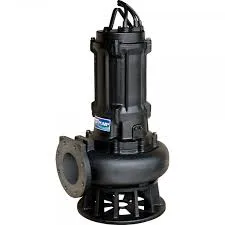English
- Afrikaans
- Albanian
- Amharic
- Arabic
- Armenian
- Azerbaijani
- Basque
- Belarusian
- Bengali
- Bosnian
- Bulgarian
- Catalan
- Cebuano
- Corsican
- Croatian
- Czech
- Danish
- Dutch
- English
- Esperanto
- Estonian
- Finnish
- French
- Frisian
- Galician
- Georgian
- German
- Greek
- Gujarati
- Haitian Creole
- hausa
- hawaiian
- Hebrew
- Hindi
- Miao
- Hungarian
- Icelandic
- igbo
- Indonesian
- irish
- Italian
- Japanese
- Javanese
- Kannada
- kazakh
- Khmer
- Rwandese
- Korean
- Kurdish
- Kyrgyz
- Lao
- Latin
- Latvian
- Lithuanian
- Luxembourgish
- Macedonian
- Malgashi
- Malay
- Malayalam
- Maltese
- Maori
- Marathi
- Mongolian
- Myanmar
- Nepali
- Norwegian
- Norwegian
- Occitan
- Pashto
- Persian
- Polish
- Portuguese
- Punjabi
- Romanian
- Russian
- Samoan
- Scottish Gaelic
- Serbian
- Sesotho
- Shona
- Sindhi
- Sinhala
- Slovak
- Slovenian
- Somali
- Spanish
- Sundanese
- Swahili
- Swedish
- Tagalog
- Tajik
- Tamil
- Tatar
- Telugu
- Thai
- Turkish
- Turkmen
- Ukrainian
- Urdu
- Uighur
- Uzbek
- Vietnamese
- Welsh
- Bantu
- Yiddish
- Yoruba
- Zulu
Telephone: +86 13120555503
Email: frank@cypump.com
Nov . 10, 2024 00:18 Back to list
Understanding the Function and Importance of Effluent Pumps in Wastewater Management
Understanding Effluent Pumps An Essential Component of Wastewater Management
Effluent pumps play a vital role in the management of wastewater, especially in residential and commercial settings where gravity drainage is not a feasible option. In this article, we will explore what effluent pumps are, how they function, and their significance in various applications.
What is an Effluent Pump?
An effluent pump is a submersible pump designed specifically for transferring wastewater that contains suspended solids. Unlike sewage pumps that are designed to handle solids, effluent pumps manage liquid waste that has fewer solid particles, typically up to 2 inches in diameter. The primary function of an effluent pump is to move effluent (the liquid wastewater) from a septic tank, sump pit, or other locations to a drainage field or municipal wastewater treatment facility.
How Do Effluent Pumps Work?
Effluent pumps operate using an electric motor that drives an impeller, which helps to move the fluid. When the water level in the sump pit rises to a predetermined height, a float switch activates the pump. The effluent is then pumped through discharge pipes to its destination, often against gravity, which makes these pumps particularly useful in areas where a sewer line may be located at a higher elevation than the source of the wastewater.
The construction of effluent pumps typically includes durable materials to withstand the harsh conditions associated with waste handling. They often come equipped with features like a check valve that prevents backflow, ensuring that treated effluent does not flow back into the tank after being discharged.
Applications of Effluent Pumps
Effluent pumps are essential in several settings
1. Residential Use In homes that are not connected to municipal sewer systems, effluent pumps are crucial for transferring wastewater from septic systems to drainage fields. They help maintain a clean and healthy environment by ensuring that waste is properly managed and disposed of.
2. Commercial Use Many commercial establishments, especially those dealing with food processing or wastewater treatment, utilize effluent pumps to handle the byproducts of their operations. Proper effluent management is essential for regulatory compliance and environmental protection.
what is an effluent pump

3. Construction Sites In construction, effluent pumps are often used to manage groundwater and prevent flooding in excavated areas. This enables safe and effective excavation work while maintaining the integrity of the site.
4. Irrigation and Agriculture Effluent pumps can also be utilized in the agricultural sector for effluent irrigation. Treated wastewater is often rich in nutrients, which can be beneficial for crop growth.
Factors to Consider When Choosing an Effluent Pump
When selecting an effluent pump, several factors should be considered
- Capacity The pump’s capacity to move a specific volume of effluent within a set time frame is crucial. The right pump size will depend on the volume of waste generated and the distance it needs to be pumped.
- Head Pressure This refers to the height that the pump must lift the effluent. Understanding the head pressure is essential for ensuring the pump can effectively discharge waste to the required location.
- Float Switches The reliability of the float switch that activates the pump is critical. A malfunctioning float switch can lead to overflows or backups, causing potential health risks and costly repairs.
- Durability and Maintenance Considering the environment in which the pump will operate, choosing a model made from corrosion-resistant materials is advisable. Routine maintenance is essential for ensuring longevity and efficiency.
Conclusion
Effluent pumps serve a critical function in modern wastewater management, making them indispensable in both residential and commercial applications. By understanding how they work and what to consider when selecting one, homeowners and business owners can ensure that their effluent management systems remain efficient, safe, and compliant with local regulations. As awareness of environmental health continues to grow, the importance of reliable effluent pumps in safeguarding our ecosystems becomes increasingly apparent.
-
ISG Series Vertical Pipeline Pump - Chi Yuan Pumps Co., LTD.|Advanced Hydraulic Design&Energy-Efficient Solutions
NewsJul.30,2025
-
ISG Series Vertical Pipeline Pump - Chi Yuan Pumps Co., LTD.
NewsJul.30,2025
-
ISG Series Vertical Pipeline Pump - Chi Yuan Pumps Co., LTD.|energy-efficient fluid handling&industrial durability
NewsJul.30,2025
-
ISG Series Vertical Pipeline Pump - Chi Yuan Pumps | Advanced Engineering&Industrial Efficiency
NewsJul.30,2025
-
ISG Series Pipeline Pump - Chi Yuan Pumps | High Efficiency, Energy Saving
NewsJul.30,2025
-
ISG Series Vertical Pipeline Pump-Chi Yuan Pumps|High Efficiency&Reliable Performance
NewsJul.29,2025










